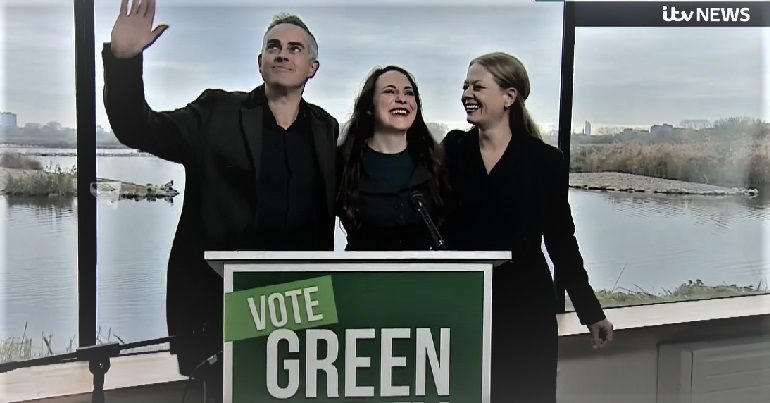Religious Misogyny: Female Bishops and the 2010 Equality Act
The Church of England’s General Synod voted against consecrating women as bishops: although supported by the bishops, clergy, and a majority of the laity in the Synod, the recently proposed measure failed to gain the requisite two thirds of the lay members, and thus lost. In a decision-making mentality which will be familiar to many activists, the Church of England’s Synod prioritises broad consensus and not simple majorities.
The Telegraph instantly suggested that this decision might mean the Church could lose its exemption from equalities legislation.
However, although the Church of England is currently exempt, as long as religion and belief are afforded broad protection by the law, it might not need to be specifically exempt. Under the 2010 Equalities Act ‘religion and belief’ are protected categories, alongside age, disability, gender reassignment, marriage and civil partnership, race, sex, and sexual orientation. However, religion and belief are, of course, different things. Should all beliefs be given equal credence? I am fiercely and adamantly opposed to any belief which posits that women are in any way inferior to men. With the recent decision, has the Church of England infringed my belief, duly protected under the Equalities Act of 2010? There seems to be a case that the legislation which is meant to protect people from discrimination allows it: what if one’s religion compels misogyny?
To quote the relevant section of the Act:
Religion or belief
(1)Religion means any religion and a reference to religion includes a reference to a lack of religion.
(2)Belief means any religious or philosophical belief and a reference to belief includes a reference to a lack of belief.
(3)In relation to the protected characteristic of religion or belief—
(a)a reference to a person who has a particular protected characteristic is a reference to a person of a particular religion or belief;
(b)a reference to persons who share a protected characteristic is a reference to persons who are of the same religion or belief.
Non-religious belief is afforded the same protection as religious faith. One can see the initial logic in this: nobody should experience discrimination for any belief which forms a core of their world-view. It allows people the protection of adulating charismatic leaders whose writings give their followers a sense of elevated social superiority and a key to unlocking and revealing the only true nature of the world despite all other attempts and systems exploring this in the thousands of years of human existence (I’m thinking of Richard Dawkins and his flock).
It is important, especially within the left and within feminist spaces, to note that a significant part the reason the vote for female bishops lost was not simply prejudice. It was not a pure conclusion that possessing a womb outweighed faith, piety, purpose, organisational competence, inspiration, and a sense of service. Rather, the issues were theological. As far as the Equalities Act goes, were they belief or religion?
This vote against female bishops was not a straight vote on their existence, but also a vote on a plan which included provisions to make sure no parish which objected to a female bishop would come under their jurisdiction. The details of this, when put in effect, would be awkward at best within a hierarchical organisation like the Church of England–what about a parish directly under a male suffragan bishop who was in turn under a female bishop? Theologically, this is profound, since the hierarchy of bishops is considered to be continuity back to the Apostles and thus the origins of the Church. The votes against, then, were also votes against a scheme to which some Church members raised theological, and not gender-based, objections.
Beyond any potential Biblical sanction or condemnation of a female episcopate, an important issue is the theological core of what determining what actually constitutes the Church as a true Church, and not simply a collection of individuals who happen to be Christian, called ‘ecclesiology’: what makes the group formed as the Church of England a body which is in continuity with Jesus’ ministry? What theological ideas are necessary to keep the Church thus formed organised in a way that keeps it within the right spiritual ordering?
The two constituencies from whom the opponents of female bishops are mostly drawn are the Anglo-Catholics and Evangelicals, the opposite ends of the Church of England’s spectrum (in old-fashioned terminology these groups, or tendencies, were known as the High Church and Low Church, respectively). Anglo-Catholics emphasise ornate worship, with an elaborate liturgy (nicknamed ‘smells and bells’) and ecclesiologically stress continuity with the Roman Catholic Church, seeing the Church of England as sitting within a landscape of Churches whose closer connection is theologically necessary. The Evangelicals, with a plainer service dominated by preaching (‘happy clappy’) place the individual and local congregations at the heart of ecclesiology. The Anglo-Catholics objected to a measure which would further distance the Church of England from the Roman Catholic Church, and the Evangelicals objected to a measure which would upset the place of individual parish congregations.
Objecting to female bishops in and of themselves is, I feel, misogynist: misogyny shaped by a concern (or need, for many) to base theology on the patriarchal social order of the Middle East and Asia Minor two thousand years ago. However, ecclesiological objections to the current proposal for female bishops in the Church of England are not necessarily misogynist—one can support female bishops and oppose the format which was on the table.
I imagine many of this blog’s readers share my view that we are justified in being intolerant of misogyny, homophobia, and racism. Importantly, this is not because those qualities compromise our core beliefs, and one’s core beliefs should always be protected, a la the Equalities Act. My opposition comes from my background in a pluralistic liberal society, but my ability to be intolerant of that toxic trifecta should not be protected because such opposition does form a constituent part of the society in which I live. Rather, my right to be intolerant of misogyny, homophobia, and racism comes because I think they deny human flourishing and inhibit all people’s ability to participate in society fully. Others will claim, often for religious reasons, the belief that people can only truly flourish within a social order I call patriarchal, homophobic, and racist. We need to be able to have this debate, and that means accepting that not all beliefs are valid simply because they are beliefs, however dearly held.
James Golden is a Postdoctoral Research Associate in the Cambridge Inter-Faith Programme, Faculty of Divinity, University of Cambridge




Jake, thanks for this. Yes, I think the Church of England’s establishment changes the question. It is not a private organisation but a public one, and, what’s more, one which is at the heart of civic rituals and the constitution. On the comment sections (like this one) on the BBC and similar sites discussing the decision in its immediate aftermath, lots of people posted a tetchy ‘what church do you attend?’ question in response to criticism of the decision. Often people complained that other religious groups were worse and yet nobody criticised them in the same way, or expected them to change to fit the prevailing public mood. Well, those other religious groups are not the State Church. It is not surprising that the same sections within the Church of England from which most of the opposition to female bishops is drawn are the same sections which have, historically, been most ambivalent about remaining the State Church.
I suppose my main question would be this (it also assumes a certain notion of post-Enlightment, liberal democracy that I would want to question): no one needs to be a part of this organization, so why does it matter that it is patriarchal, homophobic, and racist? One could simply say: just don’t be a part of it.
But perhaps the establishment of the church in England forces the question to the fore?